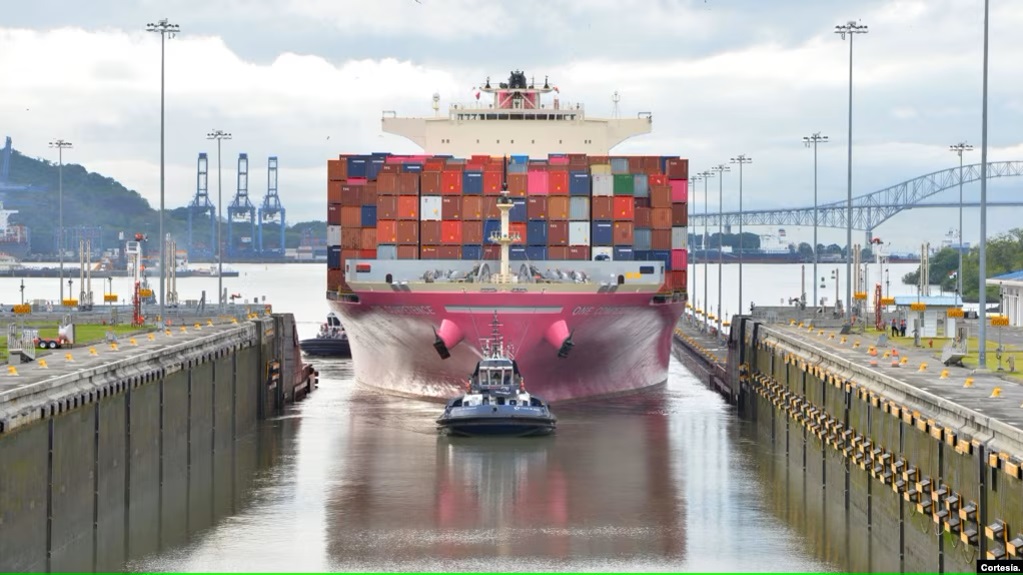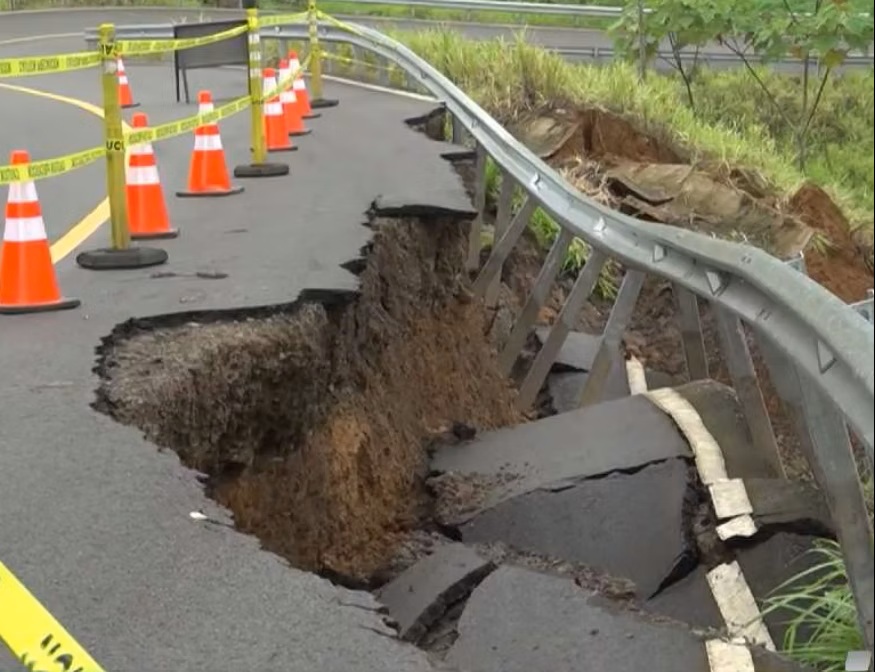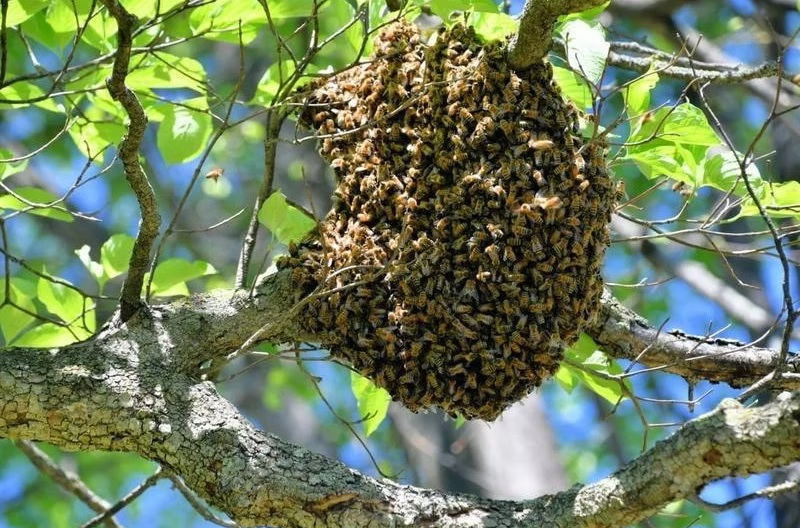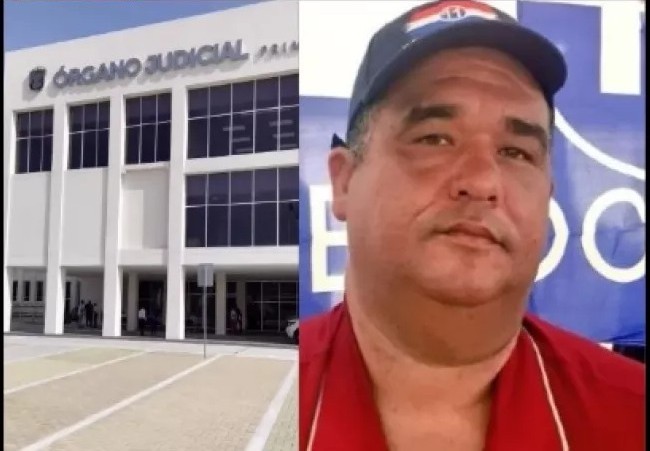Panama Canal Hearing in the US Senate in its Entirety and Blowback

This Panama Canal hearing can be viewed using the URL below:
Panama Canal in Trump’s Sights: Panama Responds with Diplomatic Offensive in Washington

Carlos Ruiz-Hernández, Vice Minister of Foreign Affairs of Panama
Amid diplomatic tension over the administration of the Panama Canal, the governments of Panama and the United States had their first meeting to unify criteria. It was learned that Tuesday January 28 of 2025, a meeting took place between the Panamanian vice Foreign Minister Carlos Ruiz-Hernández and the Secretary for Western Hemisphere Affairs of the State Department, Michael Kozak, in the office of the US official. The Wall Street Journal reported yesterday that President José Raúl Mulino had launched a diplomatic offensive in the US capital, leading to this first meeting between the senior official of Donald Trump’s administration and the person designated for this mission by Panama.
Sources from the State Department indicated that the government of Panama, headed by Mulino, would have entrusted the mission of this delicate first contact to Ruiz-Hernández, who in the past was ambassador in charge at the UN and who until recently worked as a lawyer for an international firm, in addition to developing analysis and studies of international policy at the Center for Strategic and International Studies (CSIS) in Washington. This first contact between the two governments took place prior to the upcoming visit to Panama by the United States Secretary of State, Marco Rubio. Since December 21, 2024, Trump, who was the president-elect of the United States at that time, has stated that he would recover the Panama Canal, stating that the Torrijos-Carter Treaties are not being complied with.
He continued to argue that China has influence on the interoceanic route, something that Mulino has categorically rejected. The Mulino administration, like the Panama Canal authorities, have reaffirmed that the waterway is managed by Panama, without influence from another country. Trump has continued to make that point ever since, and mentioned it again at his inauguration on Monday January 20 of 2025. On Tuesday, the US Senate Commerce Committee held a hearing on the Panama Canal tariffs and alleged interference by China. That hearing is listed above. The administration of the Panama Canal, in Panamanian hands, will be discussed by Rubio when he visits the country this weekend and meets with Mulino and the administrator of the maritime route, Ricaurte Vásquez.
Trump’s narrative dominated US Senate hearing on Panama Canal
Conspiracy theories and speculation. Without concrete evidence, Republican senators raised fears about China’s influence on the Panama Canal.

From left to right: Luis E. Sola, Daniel Maffei, and Joe Kramek, on January 28, 2025, at the hearing held by the US Senate on the Panama Canal.
The Panama Canal, its impact on global maritime trade, unfounded violations of the neutrality treaty, China and its alleged control over the interoceanic route were the topics discussed at the hearing held by the United States Senate Committee on Commerce, Science and Transportation, an organization chaired by Republican Senator Ted Cruz. It was a dynamic in which the narrative of the new US president, Donald Trump, predominated. Since the end of last December, he began to point out that the Canal’s tariffs are a scam, that the Canal is controlled by China and that his country’s intention is to regain control of the route.
Cruz Echoed Trump’s Tone

Cruz (pictured above), a 55-year-old lawyer and conservative politician who called Trump a “crying coward” during the 2016 campaign but suddenly became his “staunch defender,” opened the hearing with a broad arsenal of criticisms of the Canal’s operation, going so far as to refer directly to “violations” of the neutrality treaty for the maritime route. He presented the US president’s arguments regarding the interoceanic route:
- “The danger of having China blocking the passage through the Canal.”
- “The exorbitant cost of passing through the road.”
“There are Chinese companies building a bridge on either side of the Canal; this could take up to a decade, given the pace of construction. Chinese companies control ports at both ends of the Canal. The bridge would allow China to breach the Canal without warning. Ports give China vantage points to coordinate these actions. This represents a risk to US national security,” he said. The ports of Balboa (Pacific) and Cristobal (Atlantic) have been operated since 1997 by the Panama Ports Company (PPC), which belongs to CK Hutchison Holdings, based in Hong Kong. However, they have no influence on the Panama Canal.
The planning of the country’s port operations falls to the Panama Maritime Authority (AMP), a government entity. Cruz said that the United States “has ships practically captive to whatever the Canal wants to charge and unfair prices are being paid in Panama as a result of these commercial monopolies.” Meanwhile, he added, “The Chinese Communist Party is advancing its objectives against the United States and assuming militaristic control of the Canal,” he said. He also mentioned that, “at the request of the minorities, we invited the deputy administrator of the Panama Canal, but she declined the invitation.” The letter was sent to Ilya Espino de Marotta , deputy administrator of the ACP, last Saturday night.
However, it was not until Sunday (two days before the hearing) that Marotta received it. Espino de Marotta was unable to attend. Cruz joked about the absence of the ACP deputy administrator. “She rejected the invitation. She says it is a problem with her agenda, but I recognize that the defense of the Panama Canal is a difficult task.” He left open the possibility of summoning her on another occasion. “This commission could summon her again to attend a future hearing,” he said.
Sola the ‘Zonian’ Commissioner with Businesses in Amador

The first witness to speak was Luis E. Sola, president of the Federal Maritime Commission (FMC). He recalled his ties to Panama and identified himself as a “Zonian.” “Panama is a place I know well. I grew up in Goodland, Indiana, but Panama has been a part of my life since I moved there in my early twenties as a young Army non-commissioned officer. I began my post-military career there, my children were born there, and I have transited the Canal 110 times as a Captain, achieving the distinction of honorary chief pilot,” he said. Sola explained that the Republic of Panama manages the country’s ports, water rights and ship registration. In practice, he added, one entity — the Panama Canal Authority (ACP) — manages the Canal and is responsible for its viability, although many of the initiatives necessary to achieve that goal are under the control of the Panamanian government.
He added that many of the critical decisions regarding the interoceanic waterway depend on the Panamanian government, whose corrupt practices could hinder projects essential to the future viability of the Canal. He recalled that both Transparency International and the US State Department have described corruption as the country’s main challenge. He also spoke of China’s alleged influence in Panama. He said that since 2015, the Asian giant has increased its presence through multimillion-dollar infrastructure projects, some located in strategic areas near the Panama Canal. These contracts, he added, in many cases awarded without bidding, have been the subject of criticism for the lack of transparency. “First, we must increase support for American companies interested in doing business in Panama and the Americas. Chinese companies should not be the only ones bidding for contracts. Improving the resilience of the Canal will require significant engineering and construction work. American companies can and should be among the first considered,” he said. Sola is the father of Carolyn Sola, president and legal representative of Amador Marina, SA, a company that has a direct concession to develop a marina on Flamenco Island, at the entrance to the Canal. He was the representative of Amador Marina, SA until 2018, when he was appointed to the FMC during the first term (2017-2021) of President Donald Trump.
Maffei: ‘Ready for Any Action’
Next up was FMC Commissioner Daniel Maffei, who visited Panama with Sola last August. They met with President José Raúl Mulino and Panama Canal authorities. He mentioned that in recent years, the operation of the Canal has been limited by drought, which forced the ACP to apply draft restrictions, preventing the passage of some larger or loaded ships and reducing the number of ships allowed to transit the Canal daily. This, he said, concerned FMC commissioners and staff, who also had questions about how the ACP was determining which ships could transit and when.
“The FMC has legal authority under laws relating to foreign maritime practices to investigate and potentially take appropriate action if it determines that a foreign country, through its laws or regulations, has contributed to unfavorable conditions for maritime transportation in foreign commerce,” he noted. Following this, he and Sola visited Panama. “I have continuing concerns about the auction-type allocation procedures, especially during periods of low rainfall. As we learn more about how Panama and the Canal Authority would handle another drought crisis and receive more feedback from U.S. importers and exporters, the commission is prepared to take any appropriate action, if appropriate,” he detailed.
The Neutrality of the Canal
Next up was Eugene Kontorovich, a professor at George Mason University’s Antonin Scalia Law School and a senior fellow at the Heritage Foundation’s Margaret Thatcher Center for Liberty. In response to a question from Ted Cruz, he explained that talking about a violation of the neutrality treaty is a “confusing situation.” “I have not had confidential information on this matter. I can only speak to the meaning of the treaty,” he said. “Under international law, neutrality is a robust and detailed doctrine centered on third parties treating belligerents equally, or withholding certain accommodations, in times of war. The rules of neutrality are complex and detailed. These rules were of great interest to the founders of the United States as they navigated the geopolitics of the Napoleonic Wars. The technicalities of neutrality have less practical relevance today, when states of open war are rare and belligerence takes on various nuances,” he explained. He said that under international law, states determine for themselves the meaning of their treaty obligations, unless a dispute resolution mechanism is available. Unlike other treaties, he added, the neutrality treaty does not provide a clause to resolve disputes through a third party. Instead, it allows each party to determine the existence of a violation. This includes the right to act when a threat to the neutral operation of the Canal is still incipient.
The Weight of Maritime Trade

The fourth witness was Joe Kramek (pictured above), President and CEO of the World Shipping Council (WSC). His contributions were technical and focused on the maritime transport industry. First, he provided data on the impact of this sector in the US and then focused on the operation of the Panama Canal. “Approximately 1,100 liner shipping vessels, mostly container ships, make more than 18,000 port calls in the United States each year. The liner shipping industry directly and indirectly supports 6.4 million U.S. jobs, with wages totaling more than $442 billion,” he said. He also said that WSC member vessels calling at U.S. ports carry, on average, more than 7,000 twenty-foot equivalent units (TEUs), representing approximately 36 million TEUs of international trade entering or leaving these ports. Our largest member vessels can carry up to 24,000 TEUs on a single voyage.
After each of the four witnesses presented their arguments, the question-and-answer period began. Much of the discussion focused on whether the Chinese Communist Party has influence in the Canal’s neighboring ports, whether the neutrality treaty is being violated, and what the U.S. can do in terms of cyber security to protect its interests while transiting the route. The hearing was held just days before Marco Rubio (pictured below), the US Secretary of State, visits Panama to meet with President Mulino and Foreign Minister Javier Martínez Acha. Although the official agenda has not been released, given the importance of this topic for the Trump administration, it will be one of the topics that will predominate in the talks.

Tension, Silence and Symbolism:Marco Rubio’s Visit to Panama
The core of the Secretary of State’s agenda is expected to take place on Sunday, a day that is expected to be packed with meetings and diplomatic gestures. At a time of growing tension between Panama and the United States (US), Secretary of State Marco Rubio’s visit to the Central American country is generating expectations and suspicions in equal measure. It is also setting off alarm bells in political and diplomatic circles. This is no small matter. This is Rubio’s first visit abroad, and he has said that the Canal issue “is a legitimate issue.” “Although technically sovereignty over the Canal has not been handed over to a foreign power, in reality a foreign power today has, through its companies, which are not independent, the capacity to turn the Canal into a bottleneck in a time of conflict,” said the US official on January 16, at a time when his ratification was being considered in the US Senate.
The Panama Canal is a 100% Panamanian Institution, Says the Canal Administrator Ricaurte Vásquez (pictured below)

Canal Administrator Ricaurte Vásquez
Amid diplomatic tensions with the United States, Panama Canal administrator Ricaurte Vásquez reaffirmed on Wednesday, January 29, that the waterway “is a 100% Panamanian institution.” Vásquez points out that the statements made about the Panama Canal in recent weeks in national and international media have been closely followed.

After nearly two hours of a Senate hearing led by Ted Cruz (pictured above), with four witnesses sharing their views on Panama’s handling of the Canal, China’s presence on the interoceanic waterway, and the effect that the Canal’s tolls could have on the United States economy, it was clear that the spectacle was designed with premeditation and malice aforethought to leave the impression that, as President Donald Trump said, the Chinese control the Canal and all means must be used, including military force, to get them out of there.
Each senator who spoke followed a precise script appropriate for their future re-election campaign messages, in which they will say: “As a senator, I have fought to get the Chinese out of the Panama Canal and make food cheaper for the citizens of…….” As for the content of the information presented, there was no new data, nor was there even talk of the Panama Canal’s worst enemy, climate change. Nothing was said about the tens of billions of dollars invested by U.S. ports to take advantage of the cargo that the expanded Canal allows them to receive. There was not a single economic argument presented to support that the Panama Canal is not a cost to the U.S. economy, but a gigantic subsidy.
The Witch Hunt
Since the series of famous witch trials began in the town of Salem, Massachusetts, in 1692, the United States has been characterized by periodic cycles of mass hysteria and stereotyping of a social group, nationality, or ethnicity to turn them into scapegoats for the problems of the day. Thus, successively in the 20th century, the Germans, the Russians, the Arab nations, the Japanese, and more recently China, took turns as suspect nationalities. There is always a real or perceived enemy who wants to put an end to the American way of life, free enterprise, and cause a shock to the international order.
China is not a political adversary of the United States, as was the Soviet Union or Nazi Germany, but a strong economic competitor. The economic theories that dominated academia, think tanks, large multinationals and international financial institutions in the 1980s and 1990s postulated that China would make a transition to liberal democracy and a full market economy if it increased foreign investment until it turned the Asian giant into the world’s factory. Steve Jobs, founder of the technology giant Apple, coined a phrase that described this situation: “We Think, They Sweat.” By shifting hundreds of billions of dollars of investment into factories in China, Western countries lowered their labor costs, transferred their pollution, and enjoyed an era of abundant Asian-made goods. Soon, almost the entire world’s trade balance swung into a deficit with China. Chinese Communist Party governments shifted the economy toward higher-value-added sectors and created the world’s largest middle class. That is the witch that has come over the United States; an economic rival with a portfolio so big that it could buy or rent influence, businesses and wealth all over the world. China has learned the business manuals of multinationals, as well as the best universities in the world, very well. If one were to state a phrase that describes the current situation, it would be something like: “China studies while the United States consumes.”
Panama Trapped
The force of history has reserved leading roles for relatively insignificant geographical points in the world: Waterloo, Dunkirk, Ayacucho, Puebla, Iwo Jima or the Malvinas. There are other geographical spaces that, much to their regret, such as Singapore, Lebanon or Panama, take on an important role as symbols of an era or as part of a global trend. Panama became an economic frontier between the United States and Japan in the 1980s, and then with China, which is the clearest proof of the success of the Panamanians. The Torrijos-Carter Treaties made another country possible, and with it the risks such as drug cartels, Odebrecht, massive flow of migrants, and opportunities such as logistics development, the hub of the Americas, and the enormous potential of our biodiversity.
To take advantage of what we are, we need a lot of foreign investment: Japan was willing to consider building a level canal for 40 billion dollars in the 1980s. In turn, China considered financing the Panama-David railway for more than 4 billion dollars. Both investments implied an uncomfortable long-term commitment with these countries. The United States cannot be everything to everyone. As a continent-country, its own economic opportunities are enormous. Its economy is the largest in the world and its currency is used in 70% of international transactions. Panama and the United States are historical allies, economic partners and generally share a common culture. However, the United States has abandoned Latin America and the Caribbean, including Panama, in this century.
It is its tens of millions of drug users who have plunged much of the region into high levels of violence and conflict. This, in turn, has contributed to generating millions of undocumented migrants in search of their American dream. It is the American predilection for authoritarian governments that ended up opening the door to 21st Century Socialism. For better or worse, the alleged Chinese presence in the Panama Canal has set off alarm bells in the United States. Trump’s bellicose statements have put many democratic countries on our side. Panama needs to be much more than a Canal. It is urgent to articulate an economy that includes the entire country, that gives value to the food produced in this land, to the air we breathe and to the water we drink.
Our country can be a reference in genetic engineering, artificial intelligence, robotics, semiconductors and why not, in cinema, art and fashion. We can be all that and more. Our great task is to have normal relations with the rest of the world based on respect, transparency and national interest. Since last December, when Trump made his first salvo on the Panama Canal and China, we should have been prepared to face this challenge. The events of the coming days and weeks will reveal how well the country has prepared to make it respected and to take advantage of this global attention. If the United States wants to spend the rest of its history hunting witches, it is vital that Panama not be part of that cause.





